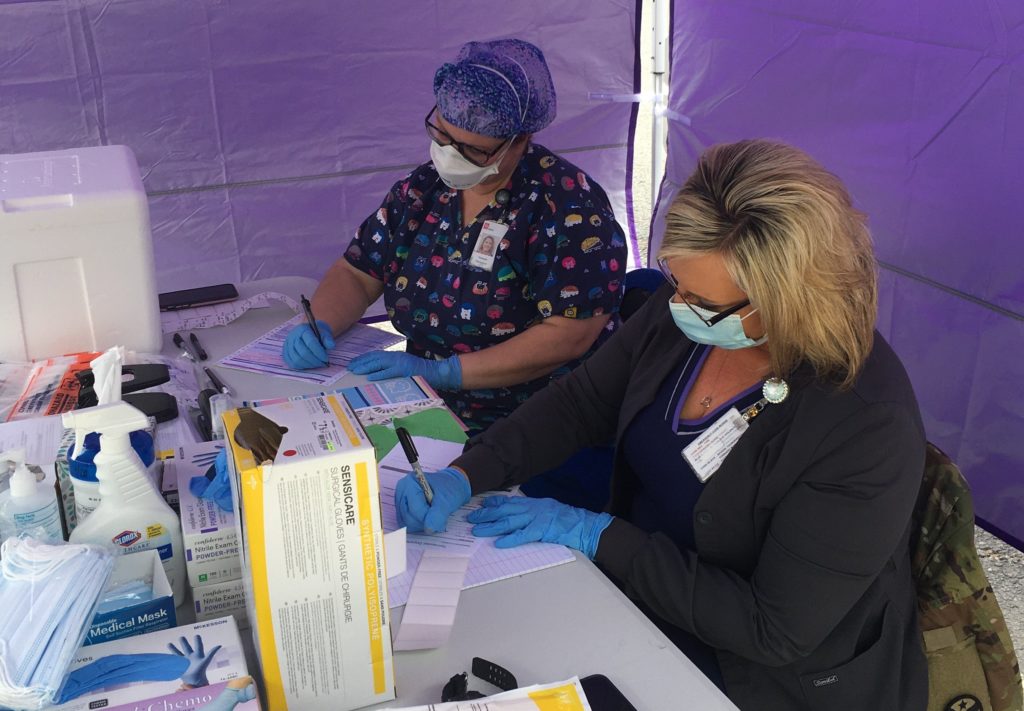
Health officials are rapidly expanding their teams that track who may have come in contact with a COVID-19 patient.
This kind of “contact tracing” is becoming increasingly important as Tennessee considers lifting restrictions on the economy.
One of the benefits of the safer-at-home orders is that if someone does get sick, it’s not very hard to find who they’ve been in close contact with — mostly, it’s people who live in their home.
But if Tennessee is going to start reopening businesses next month, as the governor has said, contact tracing will become much more complicated.
More: Gov. Lee Extends Safer-At-Home Executive Order But Makes Plans To Reopen Economy In May
“With more interactions comes more contacts, so with we’re looking to add additional staff and expand our program,” Nashville’s lead epidemiologist Leslie Waller said at Wednesday’s briefing.
A few weeks ago, Metro Public Health Department had just four people tracking down everyone whom a person sick with COVID could have infected. This included anyone who’d been within six feet of them for more than 10 minutes.
“I’m not going to lie, there have been a couple of days where that’s been really difficult because we were a small team early on,” Waller says.
The team has since grown to 40 people. As of Tuesday, Waller says they were following 466 individual contacts to see if they develop symptoms.
A spokesperson says the department plans to bring in more Metro employees and medical students as the safer-at-home order lifts in the coming weeks.
Meanwhile, the Tennessee Department of Health is looking to more than double its statewide team. It’s circulating email requests for 300 state workers to volunteer for temporary positions.
A TDOH spokesperson says the experts would still conduct the initial investigation. But the temporary staff would make daily calls to the contacts to see if they’ve developed any symptoms. And if they do get sick, the contact tracing would start over.
Initially, more than a third of cases in Nashville were linked to contacts at work. So as businesses reopen, city health officials are asking that employers develop a way to quickly share information about workers and cooperate fully with investigations.
“They should consider a work exposure not an ‘if’ but a ‘when,’ and plan for that,” Waller says.

